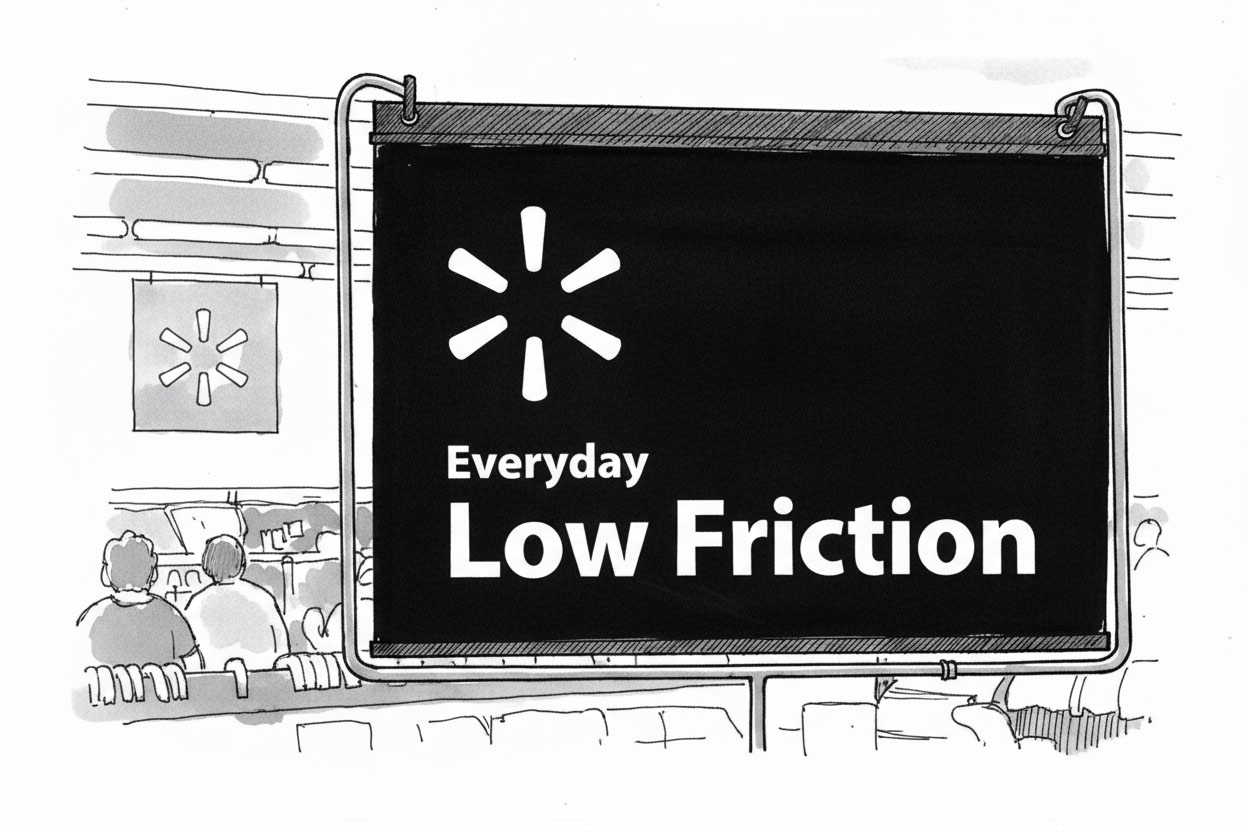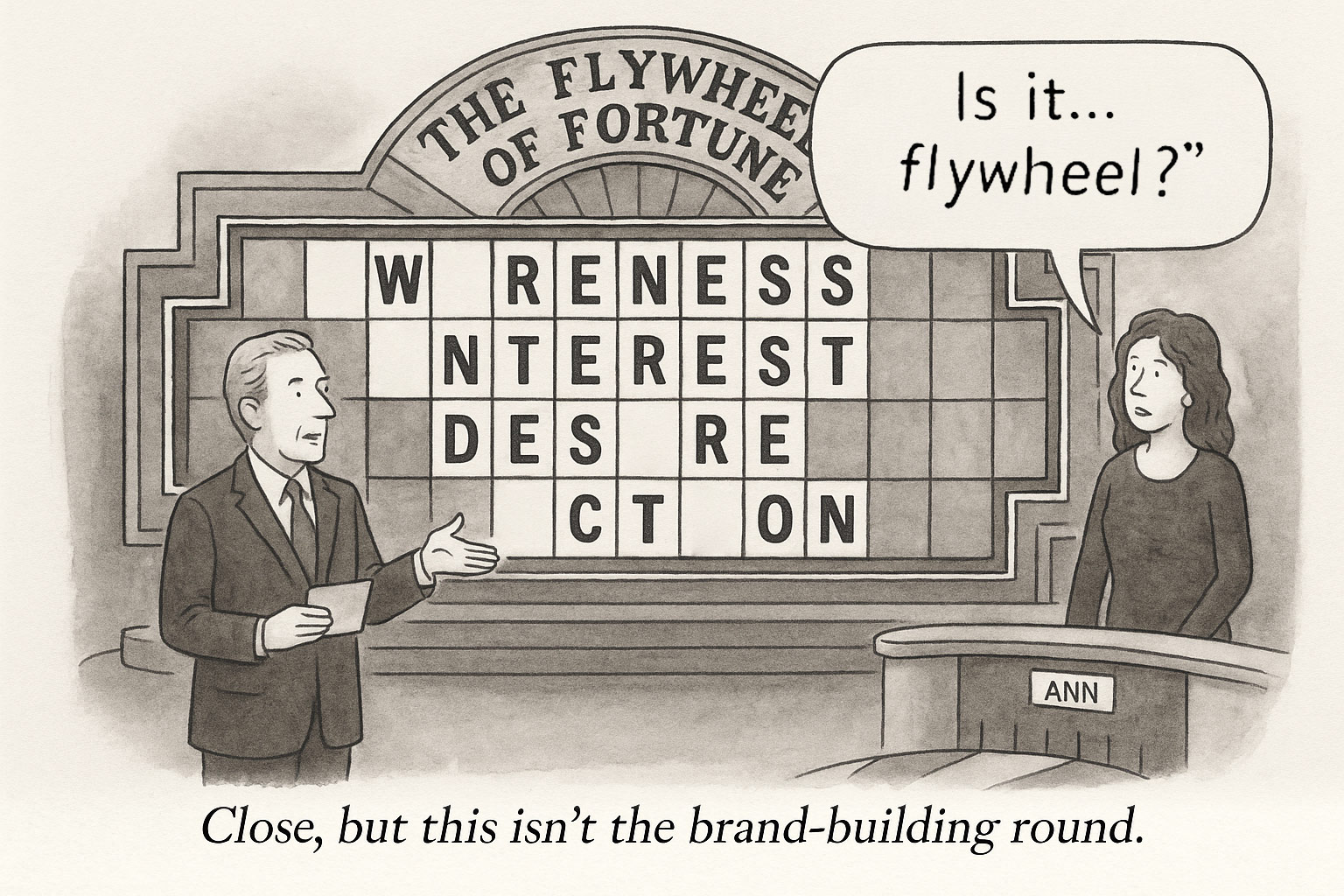.png)
“Trendwashing” Will Define 2024


Welcome to Wednesday, Futurists!
In 2018, we coined the term “Trustwashing” as an abstract concept that encompasses the various ways businesses co-opt social and cultural movements to gain trust with (aka persuade) a consumer.
The 2000s saw their fair share of greenwashing, and the 2010s saw their share of pridewashing. But as the culture has become less monocultural, and algorithmic timelines create ever-finer niches and causes to support, chasing trends is itself a trend.
Brands now are guilty of trendwashing more than anything else. “Your real TAM (total addressable market) is post-mimesis,” says Future Commerce co-founder Brian Lange. “To be part of the cultural moment, brands have to latch onto mimesis; you only know how viable your product or service is once the mimesis subsides.”
Presumably, once the trend dies down, if you have customers left, you’ve got a chance at a viable business. The existential risk for brands of all sizes is how to be on-trend when the speed of culture seems to be accelerating.
The current trendwashing fascination is led by applying AI en masse to every sector of consumer goods. This is evident in the most recent announcement by L’Oreal of a beauty chatbot, L’Oreal Paris Beauty Genius™, which makes recommendations based on a chat window. Don’t call that conversational commerce, though. This is AI. Even LG (the appliance company) is developing an LLM and showed off some of the roadmap at CES this week.
Beneath that thin veneer of AI is an inexpensive LLM, usually a version of GPT 3.5 by OpenAI. This leads to funny and unexpected prompt injection attacks, such as getting Chevrolet of Watsonville to agree to sell a Chevy Tahoe for $1, “no takesies backsies”.
This form of AI washing will continue throughout 2024, but the real trend to keep an eye on is the hype cycle of Spatial Computing. With the official release of Apple Vision Pro coming to the States on February 2nd, we anticipate a new cycle of app store mania, developer arbitrage, and jailbreaking to begin all over again.
We break down this new cycle in this week’s podcast, the first of 2024, landing on Friday.
— Phillip
P.S. We’re almost at our goal of one hundred five-star reviews for the podcast on Apple. Would you please take 2 minutes and support the show by leaving us a review on Spotify and Apple Podcasts? Thanks, futurists.

Sights & Sounds: Answering criticisms head-on, Yotpo shifts to a transparent pricing strategy with a new price configurator, and re-levels pricing of their legacy products.

Touch: Vacation Inc’s newsletter profiles one of the last waterbed companies in America. Vacation’s cofounder Marty Bell was profiled in the MUSES Journal.


The Palate: Pop Tarts and Cheez-Its won the College Bowl circuit, may set up a new era for CPG sports tie-ins. Graza cofounder Andrew Benin is profiled in AdAge and admits that Squeezegate was a boon for the brand. In a full-circle moment, White Claw launches a 0% seltzer.

Our very own Phillip Jackson was named a Top-100 Retail Expert. Rabbit Inc announced a handheld AI device featuring industrial design by Teenage Engineering. The Web isn’t open, it is built to serve Google.
And finally, regulators approved a new Bitcoin ETF that pages the way for new products and broader adoption of cryptocurrency in the United States.











.svg)
